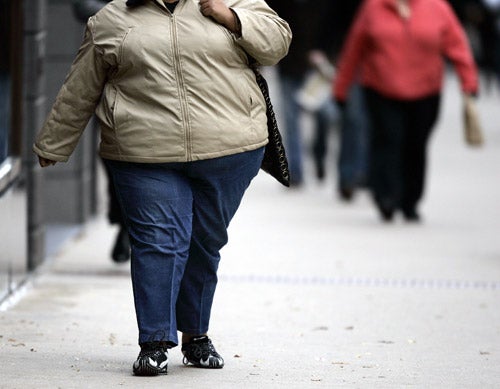Obesity 'could be a disability', EU court rules
The ruling could force widespread changes across Europe in the way employers deal with obese staff

Obese people could also be considered disabled, the European Court of Justice has ruled.
The court, whose laws are binding throughout EU members states such as the UK, said obesity could be considered a disability if it “hinders the full and effective participation of the person concerned in professional life on an equal basis with other workers”.
The ruling could force widespread changes across Europe in the way employers deal with obese staff and what support they might be legally required to offer.
According to the World Health Organisation, whose definition was relied upon in court, a person is obese if their body mass index (BMI) is over 30. It is calculated by taking a person's weight in kilograms and dividing it by the square of his or her height in metres.
The judgment comes after the landmark case of a Danish childminder four years ago. He was believed to be so fat he was unable to tie his own shoelaces, and was sacked by his employers.
Crowley Woodford, employment partner at Ashurst law firm, said the decision was a "welcome relief" for employers.
"The ruling confirms that there is no general principle prohibiting employers from discriminating on grounds of obesity," he said.
"Had the ECJ found that obesity is a protected characteristic in itself, it would have opened a can of worms. What about protection for those who are underweight, short or tall or who simply believe their employer thought they didn't look attractive enough? It could become difficult to know where to draw the line in terms of workplace protection for body shape or physical appearance."
Vanessa Di Cuffa, employment partner at Shakespeares law firm, added: "Employers must continue to, or start, providing appropriate support to staff with obesity issues at any level."
Additional reporting by PA
Join our commenting forum
Join thought-provoking conversations, follow other Independent readers and see their replies
Comments
Bookmark popover
Removed from bookmarks